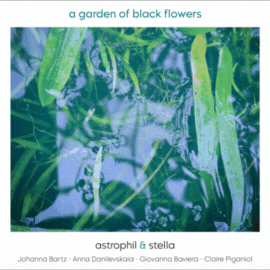American film composer Carl Davis died today at the age of 86. A consummate allround-musician, Carl Davis is widely known in many spheres of international music-making. Born in New York in 1936, he studied composition with Paul Nordoff and Hugo Kauder, and subsequently with Per Nørgaard in Copenhagen. His early work in the USA provided valuable conducting experience with organizations such as New York City Opera and the Robert Shaw Chorale.
In 1959 the revue Diversions, of which he was co-author, won an off-Broadway Emmy and subsequently travelled to the 1961 Edinburgh Festival. As a direct result of its success there, Davis was commissioned by Ned Sherrin to write music for ‘That Was The Week That Was’. Other radio and TV commissions followed and Davis’s UK career was launched.
Since then he has been enormously successful in the world of theatre, composing scores for the Royal Shakespeare Company and the National Theatre, and working closely with artists of the calibre of Laurence Olivier, John Gielgud, Joan Littlewood, Jonathan Miller, John Wells, Barry Humphries and Billy Connolly.
Davis is equally well-known in the field of dance. He began working with London Contemporary Dance Theatre, producing scores for David and Goliath (1975) and Dances of Love and Death (1981). Sadlers Wells Royal Ballet commissioned A Picture of Dorian Gray in 1987, and this was followed by commissions from Northern Ballet Theatre – the award-winning A Simple Man (1988), Lippizaner and Liaisons Amoureuses (1989) and A Christmas Carol based on Dickens’ (1992). His most recent full-length ballet, commissioned by the English National Ballet, is based on themes by Tchaikovsky Alice and Wonderland (1995).
Davis’s output for film and television is vast, including The World At War, The Snow Goose, Hotel du Lac, Hollywood, Naked Civil Servant, Silas Marner, Champions, Scandal, The Commanding Sea, Oppenheimer, The Rainbow, The French Lieutenant’s Woman (the winner of both the BAFTA and Ivor Novello awards), and Pride and Prejudice (nominated for a BASCA Ivor Novello award for ‘Best Music For a Television Production’ in 1996).
His 1980 score for Abel Gance’s silent film Napoleon triggered an extraordinary revival of interest in the silent film, and Davis’s oeuvre of more than twenty scores for this medium, including Flesh and the Devil, Ben-Hur, The Thief of Bagdad, Greed and Intolerance, has brought him international acclaim. His most recent silent film, Phantom of the Opera, was enthusiastically received at the Edinburgh Playhouse in August 1996, followed by its London premiere as part of the London Film Festival in November 1996. He was a welcome guest as composer and conductor of the Live Cinema sessions organized by the Luxembourg Phil.
Throughout his career Carl Davis has composed concert works, among which a Clarinet Concerto, Fantasy for Flute, Strings and Harpsichord and a Symphony are particularly notable. His most recent symphonic work, A Circle of Stones, consists of four symphonic pictures for orchestra and was written for Mike Mansfield Publications for broadcast on S4C in 1997. There are also many concert suites derived from film scores, vocal music, choral works, instrumental and chamber music, and opera.
In 1991 his first collaboration with Paul McCartney produced Paul McCartney’s Liverpool Oratorio, now being performed in many countries throughout the world. The EMI recording of the work has achieved record sales world-wide, whilst the BBC documentary and EMI’s commercial video have done much to publicize this new departure for both composers.

























